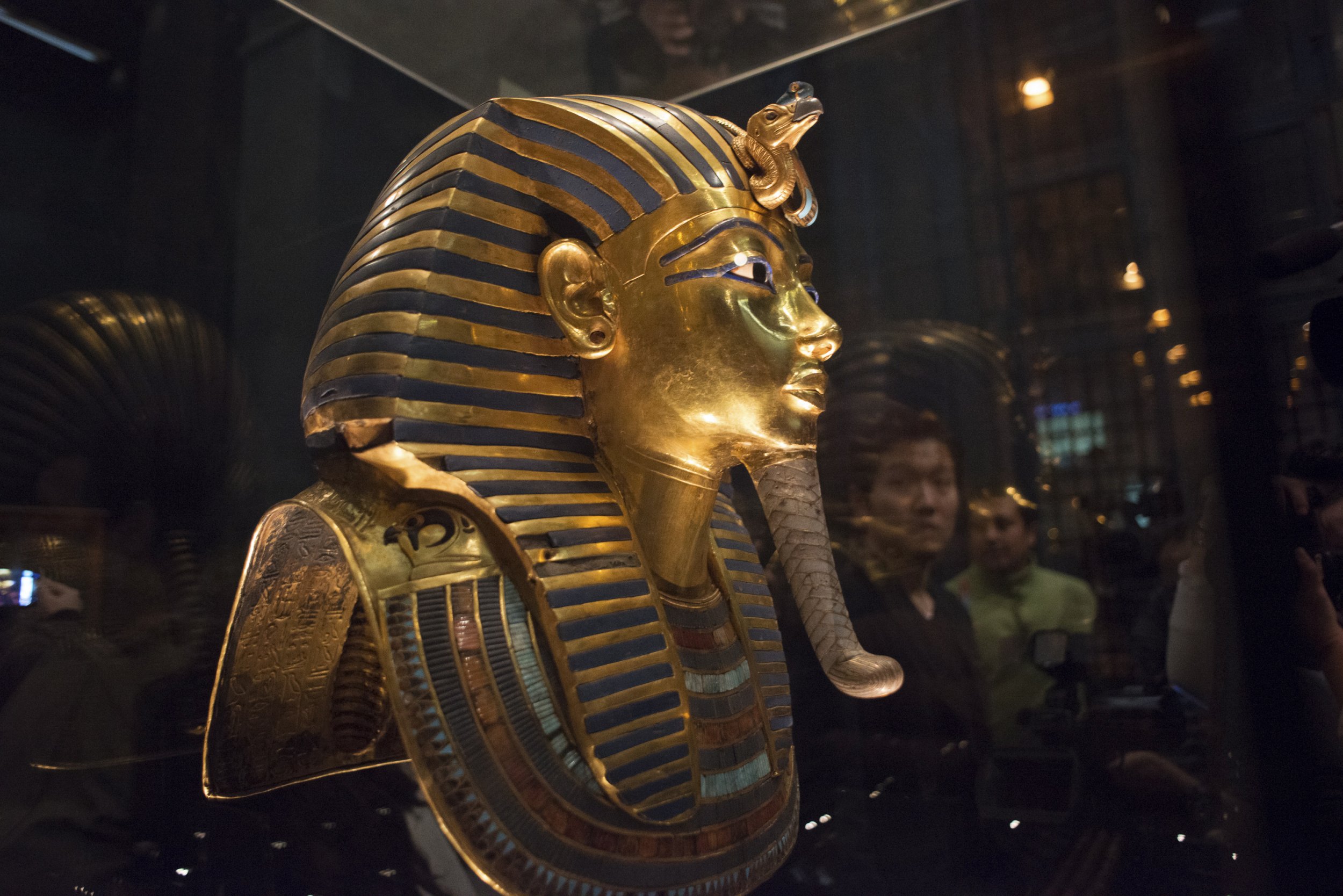
King Tutankhamun's final resting place has been known for almost 100 years, since Howard Carter's landmark discovery of the tomb in the Valley of Kings in Luxor, Egypt in 1922.
Now, researchers say they're convinced the Egyptian pharaoh's tomb bears a hidden chamber that has yet to be explored. The size of the chamber is unknown, but researchers are confident the radar imaging scans indicate that it does, in fact, exist.
So what's in the hidden chamber? Some researchers are confident that the long-lost remains of Queen Nefertiti, thought to be Tutankhamun's stepmother (she died in 14th century B.C.), may be among the treasures lying behind a partition wall in the tomb.
Mamdouh al-Damaty, Egyptian antiquities minister, said at a news conference on Saturday: "We said earlier there was a 60 percent chance there is something behind the walls. But now after the initial reading of the scans, we are saying now it's 90 percent likely there is something behind the walls."
Others, like Nicholas Reeves, a British Egyptologist leading the investigation, believe the tomb was actually Nefertiti's, and that Tutankhamun was, for reasons unknown, placed in the outer chamber. Researchers have long wondered why Tutankhamun's tomb was more stylistically similar to that of queens at the time, and significantly smaller than that of other pharaohs buried in surrounding areas. Regardless, the discovery could be critical to understanding more about ancient Egypt, and as NBC notes, could help Egypt's waning tourism industry.
Last week, archaeologists in Egypt began probing the tomb for potential chambers, prompted by images discovered in August that suggested a secret chamber lay behind Tut's remains. The Guardian reports that the initial radar images taken in the first three days of testing will be sent over to Japan for analysis.
After a month, the search for the hidden chambers will start again in Luxor, in southern Egypt. On Saturday, Reeves said the team would be proceeding with extreme care. "The key is to excavate slowly and carefully and record well," he said. "The fact is this isn't a race. All archaeology is disruption. We can't go back and re-do it, so we have to do it well in the first place," he said.
Researchers expect to break on through to the other side, so to speak, within the next three months, according to NBC News.
Uncommon Knowledge
Newsweek is committed to challenging conventional wisdom and finding connections in the search for common ground.
Newsweek is committed to challenging conventional wisdom and finding connections in the search for common ground.
About the writer
Paula Mejia is a reporter and culture writer. Her work has appeared in The Guardian, Rolling Stone, The A.V. Club, Pitchfork, ... Read more
To read how Newsweek uses AI as a newsroom tool, Click here.








